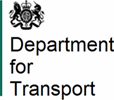
06 Feb 2020
Britain’s first all-electric bus town to pave the way for green communities of the future
- Local areas to apply to become Britain’s first fully electric bus town – receiving up to £50m to make the switch
- Part of £170m fund to encourage more people to take the bus, making journeys greener, easier and more reliable
- Includes £20m to trial on-demand ride sharing services in rural and suburban areas, £70m for “Superbus” networks and £30m to improve current services or restore lost routes
Local authorities can now apply to become the UK’s first all-electric bus town, setting the ‘gold-standard’ in environmentally friendly public transport, Transport Secretary Grant Shapps has announced today (Thursday 6 February).
The winning area will receive up to £50m to help pay for a brand-new fleet of electric buses, reducing emissions and cleaning up the air in their community.
The town selected will be used as a model to help deliver the Government’s ambition for all buses to be fully electric by 2025. A town with 200 electric buses could save around 7,400 tonnes of CO2 each year - the equivalent to taking 3,700 diesel cars off the road.
The £50m fund is part of a total £170m allocated today to improve services and make bus journeys greener, easier and more reliable. This commitment marks the next step in delivering the Government’s £220 million package to overhaul bus services across England and level up transport infrastructure.
Transport Secretary Grant Shapps said:
"Buses carry more people than any other form of public transport in the UK, and with 200 electric buses able to offset 3,700 diesel cars, it is clear they have a crucial role to play in bringing down emissions.
“But Britain’s first all-electric bus town is just the start. Helping deliver on our manifesto promise, this £170 million package will help us to create communities which are cleaner, easier to get around and more environmentally friendly, speeding up journeys and making them more reliable.
“By focusing on efficient and affordable transport, we will make greener journeys the natural choice.”
Government is also making it easier and more convenient to take the bus through a new £20m fund to encourage the development and trial of on-demand ride sharing services in rural and suburban areas - helping people to plan their journeys down to the minute. The fund will boost traditional services by helping people use bus travel to get closer to where they live, at a time that is convenient for them.
A further £30 million of extra funding for local authorities in 2020 to 2021 has been confirmed today, to help them improve current bus services or restore those that have been lost. Every local authority in England, outside of London, is eligible for this funding to ensure that crucial bus routes can be revived or reinvigorated.
Passengers will also benefit from new low-fare, high-frequency "Superbus" networks to increase the frequency of services by investing in bus lanes and other priority measures. The first will be introduced in Cornwall next year, where the network will be integrated with the county's main railway line, which will also see increased train frequency, connecting people with jobs, education and family.
Investments are also being made to speed up bus journeys. As part of the first tranche of the £2.5 billion Transforming Cities Fund, Derby and Nottingham, the North East, Portsmouth and Southampton will see the deployment of bus priority traffic lights to speed up trips to the city centres.
The Government announced last year that it will launch the UK's first-ever long-term bus strategy and long-term funding plan, to ensure that buses are prioritised into the future.
Contact Information
Hannah Butler
hannah.butler@dft.gov.uk
Notes to editors
These improvements are the latest step in making Britain a world leader in the zero-emission transport revolution. Government has already provided £150m for the purchase of low emission buses and £67m for the retrofitting of existing fleets to help cut exhaust emissions from buses on our roads.
£170m package
The £170m is part of the £220m announced by the Chancellor in September. The rest of this fund will be allocated in due course.
The long-term funding package will be announced as part of the 2020 spending review. It will also set out plans to support local authorities which want to pursue London-style bus systems in their areas. The area where such proposals are most advanced is Greater Manchester, which is shortly due to consult on adopting a proposed franchised model in 2020. The package will also support other areas which would prefer to pursue other forms of co-ordination, such as voluntary or statutory partnerships with operators.
£30 million for improving current bus services
Where there is not enough demand for a bus route to be commercially viable, local authorities have powers to subsidise socially necessary bus services. To support this, £43 million is provided to local authorities by Government each year. The £30 million funding will also support this.
Local authority funding allocations are based on past local authority supported bus mileage. 20% of the funding was set aside to provide a top-up for rural authorities, recognising that the loss of supported services in rural areas can leave people at risk of losing access to public transport services.
Local authorities will be provided with their funding allocation if they meet the funding requirements set out by Government
